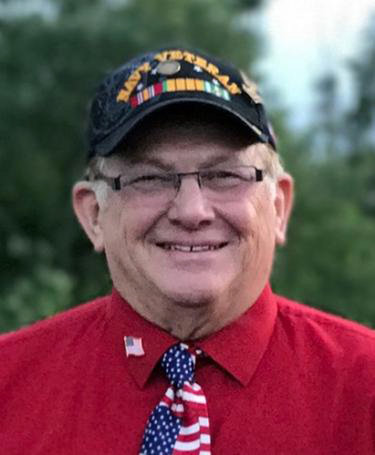Westerlo election 2017: Richard Filkins
WESTERLO — Richard Filkins, a Republican, is making his first run for office, seeking a seat on the Westerlo Town Board.
“I’m trying to get more people aware of what’s going on in town,” he said of his reason for running. “I want to get more people to meetings, so they know how their money is being spent.”
Filkins, who is 70, is a Vietnam veteran and has retired from his railroad work as a diesel mechanic. He has lived in Westerlo since 1966, and is a life member of the fire company and a trustee of the Volunteers of the Westerlo Rural Cemetery.
Filkins asserted, “The current board doesn’t take into account everyone in town. You should serve everybody, not just a select group,” he said.
Filkins favors doing a town-wide property revaluation, moving Westerlo to full-value assessment.
“A lot of the fourth- or fifth-generation families no longer run their farms, but they get a farm credit,” he said. “It’s unfair to other residents. It would be more fair to everyone,” he said of revaluing properties.
Filkins went on, “It sounds harsh to a fifth- or sixth-generation family, but if they gave up farming, it should be taxed accordingly.”
On town buildings, Filkins said, “They should look into something for the highway department.”
He noted he wasn’t on the town board when the original plan was discussed to replace the highway building. “I wasn’t there so I don’t know if they got other bids,” he said. “They should try to enlist more bids and go after federal grants.”
On the town hall, which was built as a school, Filkins said, “The school is past its age. It might be the best thing to tear it down and build something new.” For that project as well, he advised seeking federal grants or “something from the state.”
Filkins also spoke of the importance of a functional town hall. “You need a place for people to come in a storm,” he said. “You need a generator and a place for people to eat and stay in an emergency.”
On transparency, Filkins said, “You need to get the message out to more people on what’s being done; you need to generate more interest.”
Asked how he’d go about that, Filkins said, “Right now, I’m not sure. … Maybe a bulletin board or display board. You have to let people know when a meeting is and what will be discussed.”
He also said, “A lot is done before the regular monthly meeting. A lot of that stuff should be brought out at the regular meeting.”
On zoning, Filkins said, “What I read of the comprehensive plan, it was really broad guidelines. Some of them are too broad to help us move on.”
He added, “They had some good points … But they had some gray areas that need to be defined to help us progress into the 21st Century.”
He also said, “We’re a town of mostly senior people. Young people are moving out.”
He suggested encouraging solar power might help, but added regulation should be in place so that panels are not placed close to roads and are not placed on roofs in a way that could hinder firefighters.
On the budget, Filkins said, “The first thing you’ve got to do is get a computerized program to keep a more accurate record.”
He also said, “At the town meetings, they should discuss the budget.”
On the water district, Filkins said, “I know they’re in the red. Maybe use a metered plan so people who use more, pay more ...It needs to get on solid ground.”


